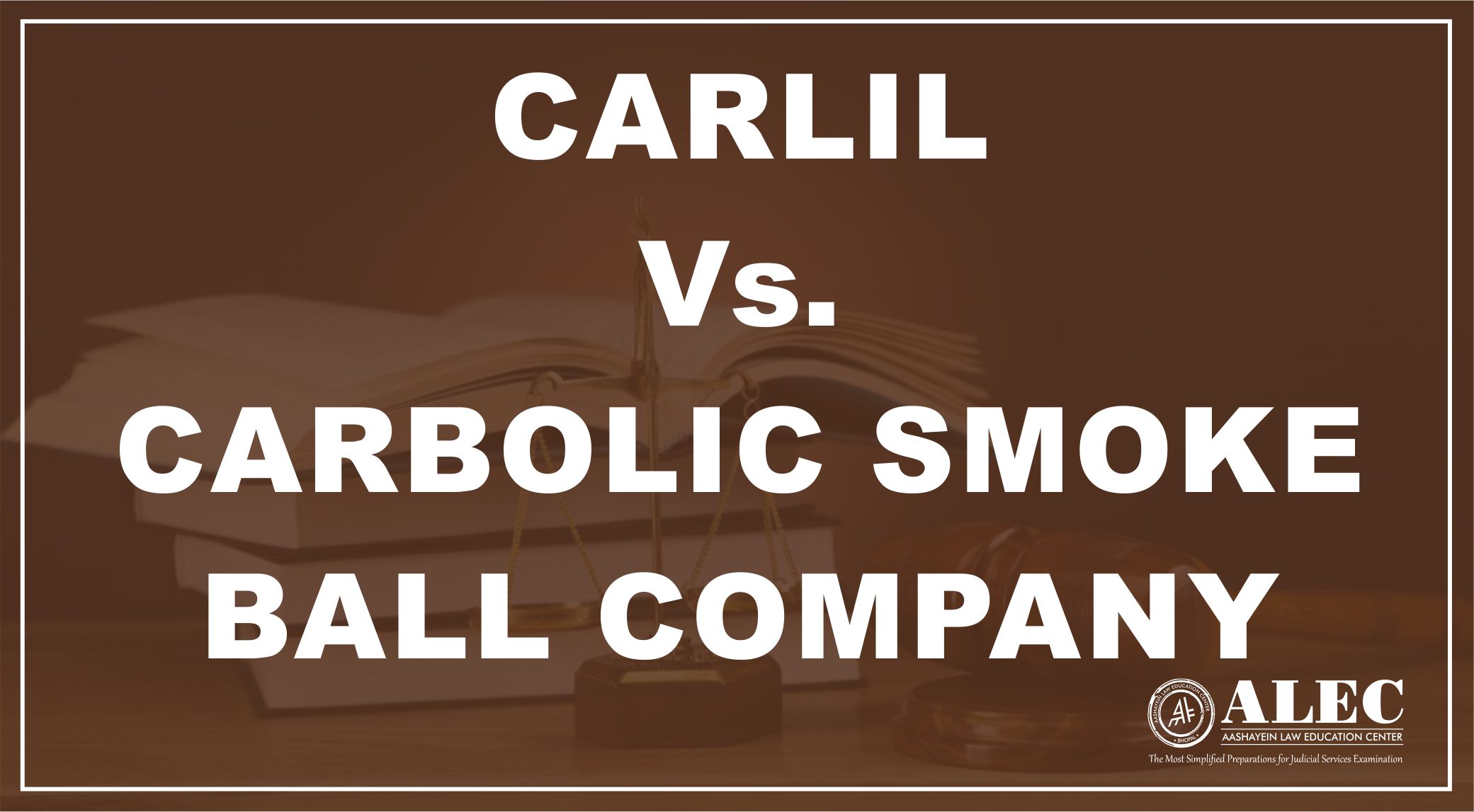CARLIL
Vs.
CARBOLIC SMOKE BALL COMPANY
(1893) 1 Q.B. 256
In our day to day lives most of the relationships are governed by the agreements. The agreements which are enforceable by law are contracts. However, to constitute any agreement the foremost requirement is the offer and its acceptance. The offer is constituted when there is a proposal by one i.e. the willingness to do or abstain to do something with an intention of obtaining assent of the other party. Although, the concept of offer is complicated, simplified by the present case.
BENCH:
Lindley LJ, Bowen LJ and AL Smith LJ
FACTS:
The defendant company made a product called “Smoke Ball”. It claimed to be a cure to influenza and many other diseases. The smoke ball was a rubber ball with a tube fixed to its opening. The ball is filled with Carbolic acid (Phenol). The tube is supposed to be inserted in one of the nostrils and the bottom part of the rubber ball is to be pressed. The gas enters the respiratory tract and flushes out all the viruses. The Company published advertisements in the Pall Mall Gazette and other newspapers, claiming that it would pay £100 to anyone who got sick with influenza after using its product according to the instructions set out in the advertisement. Defendant deposited £1000 with the Alliance Bank, Regent Street, showing sincerity in the matter. Plaintiff believing in the accuracy of the information stated, used defendant's product as prescribed but still got infected with the influenza. Plaintiff's husband wrote two letters to the defendant, stating the whole situation and claimed £100 as promised in the advertisement; however, both the letters were ignored by the defendant. On sending the third letter, defendant replied that they believed in the efficacy of smoke ball and to avoid any fraudulent claims they would require plaintiff to come to the company and use the ball according to the prescription and she will be observed by the secretary. Plaintiff brought the present suit.
You can also read the Blog by visiting [Blog]
For more information, visit [Aashayein Enquiry Section]
ISSUE:
1) Whether there was any contract and it had binding effect between the parties?
2) Whether the contract in question required a formal notification of acceptance?
3) Whether plaintiff was required to communicate her acceptance of the offer to the Carbolic Smoke Ball Company?
4) Whether plaintiff provided any consideration in exchange for the reward of £100 offered by the company?
HELD:
The court held that the existing arrangement between the plaintiff and defendant was a binding contract and defendant is liable to pay plaintiff £100.
ANALYSIS:
The contracts are preceded by the offer and its acceptance. The offer as defined in the Indian Contract Act, 1872 under Section 2(a) "When a person expresses his willingness to another person to do or to abstain from doing something and also obtain the consent of such expression, it is called an offer." The definition of the Contract Act specifies "person willingness to another person to do or abstain to do something", it nowhere lays down that the person should be a single person or a general public. In the present case, defendant made the general offer to the public. General offers are offers made to the public at large and not to the definite person. The court laid down following points regarding the legality of contract and hence this case became landmark in the field of contractual law.
1) The court held in the present case it was a unilateral contract i.e. an offer to the general public and it should not be preceded by notification of acceptance, mere performance would be deemed acceptance.
2) The company was serious regarding the contract as it is evident from the deposition of £1000 with the Alliance Bank, Regent Street. It could be inferred that defendant had intention to fulfil the offer.
3) Regarding the third issue court held that consideration existed in the present case in the form of sales and secondly in the form of detriment to the consumer. There was a promise to pay to the consumer in case of detriment to them on consumption of smoke ball which thereby led to the sales of the defendant.
The present case was landmark in the context that it clarified the legal position regarding unilateral contracts and general offers. It established the position that the offer could be made to the general public however for the same, two conditions are required, firstly, there should be an intention of the party to make an offer which could be inferred from the statement or advertisement it made and secondly, there should be performance of the conditions by the other party in the prescribed manner; it doesn't require notification of acceptance, mere performance can suffice the acceptance.

